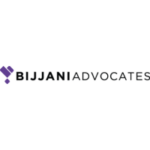-
What are the typical ownership structures for project companies in your jurisdiction? Does this vary based on the industry sector?
Project companies are incorporated as “special purpose vehicles” and are usually owned by the parent companies that are responsible for sponsoring and/or developing PPP projects (in the broad sense, encompassing government-pays and user-pays PPPs, the latter usually referred to as “concession schemes”). In Brazil, project companies are generally incorporate either as limited liability companies or as private stock corporations. The latter tend to be more common, especially in mega-projects, because of the higher level of legal governance demanded by the Joint Stock Company Act of 1976. It is also possible to perform an IPO of a project company incorporated as a private stock corporation, but that is not yet common in Brazil.
-
Are there are any corporate governance laws or accounting practices that foreign investors in a project company should be aware of?
Yes. Foreign companies and investors should be aware of the “Anticorruption Act” of 2013 (Federal Legislative Act no. 12.846/2013). This legislation has several provisions regarding governance, compliance and penalties applicable in case of wrongdoing. It is specifically relevant for those who contract with public authorities and since project finance in Brazil is mostly used on PPPs (in the broad sense, encompassing both user-pays and government-pays PPPs), investors must seek advisory when it comes to governance and compliance. As for accounting, Brazil adopts IPSAS 32. In this sense, when it comes to PPPs, all PPP agreements must be recognized on public balance sheets, regardless of risk allocation schemes.
-
If applicable, what forms of credit support from sponsors or host governments are typically provided?
In Brazil, Development Banks such as Banco Nacional de Desenvolvimento Econômico e Social (BNDES) and Caixa Econômica Federal (CEF) are the most important and proeminent lenders in PPP Projects. Many industries, as energy and basic sanitation, have special credit lines that can be accessed in either very competitive or even concessional terms. As for sponsors, limited recourse project finance schemes are still the general rule and it is common that lenders ask for equity support agreements as security. Project bonds are a very common feature in the energy sector, but have been increasingly more used in the context of road and water and wastewater PPPs (mostly in “concession scheme” contracts)
-
What types of security interests are available (and suitable) for a project financing in your jurisdiction?
As Brazil is a civil law country, all securities are established by a specific legislative act. According to our Civil Procedure Code, cash and bank deposit are the general rule in terms of security. In this case, the creditor must obtain a judicial warrant in order to notify the bank.
Generally, any type of asset can be named as security, but the general rule is to enforce judicially and sell the asset so that proceeds are used to pay the creditor. An exception applies to the “fiduciary cession” where banks do not need judicial proceedings to be brought in order to auction the assets taken as security.
Security can also be taken over shares. In Brazil all shares are in certificated form. According to our Civil Code, though, it is only possible to enforce this form of security if all other have been depleted or are insufficient. And, although assets in general, such as real estate, plants, buildings and crops cans also be taken as security, regulated assets, such as public utilities and public and governmental infrastructure, cannot, under any circumstance, be expropriated or sold to pay for defaulted obligations. In these cases, though, the Concessions Legislative Act provides for having the PPPs’ receivables as security, as well as ensuring that the lender can step in to avoid bankruptcy by refinancing debt and restructuring the project’s cashflow.
Receivables can be taken as security specifically in PPP contracts (in broad sense, encompassing both government and user-pays PPPs, concession schemes and other PPP-like contracts that fill in IPSAS 32 PPP concept). For the chargor to collect, the debtor must incur breach of contract or default. Specifically, in the Public Authority must be previously notified if the PPP contract has already stipulated so. However, in some cases, depending on the PPP contract provisions, the Public Authority must approve collection in case of contract breach or default by the debtor.
It is also possible to use trusts. These parties are designated as “fiduciary agents”. This concept is regulated by Instruction Norm no. 583/2016, enacted by the Comissão de Valores Mobiliários – CVM, which functions as the Brazilian counterpart to US Securities and Exchange Comission – SEC. And, although security trusts exist, it is possible, especially for small contracts, to enforce the mechanisms of parallel debt and joint and several creditor status.
-
How are the above security interests perfected?
Under Brazilian law, our Civil Code stipulates that a specific contract must be signed for each security given. Depending on the security class, for instance, security provided by a specific insurance policy – such as guarantee insurance – must be issued by a regular insurance company. There are special norms that apply to assets such as real estate, airplanes or boats in respect of their being taken as security. In these cases, security must be noted in the deed of the real estate asset, airplane or boat in the public records. However, as stated, for all general cases, including securities issued under project finance agreements, a specific contract or a specific provision in the project finance agreement must be signed by the parties.
-
Please identify how security is enforced (notably the enforcement options available for secured parties) both pre and post insolvency/bankruptcy of the project company?
Except for the “fiduciary cession” (a specific security only enforceable by banks and other financial companies), every security requires enforcement by the judiciary. Generally, assets must be auctioned in a judicial proceeding and the proceeds will pay for the default. Nonetheless, as of 2015, the new Civil Procedure Code allows for direct expropriation of assets taken as security, but it also must be requested under judicial proceedings. Courts may freeze debtor’s assets where no security has been taken.
On the other hand, as mentioned above, regulated assets, such as public utilities and public and governmental infrastructure, cannot, under any circumstance, be expropriated or sold to pay for defaulted obligations. In these cases, though, the Concessions Legislative Act provides for having the PPPs’ receivables as security, as well as ensuring that the lender can step in to avoid bankruptcy by refinancing debt and restructuring the project’s cashflow.
In case of bankruptcy, security taken by financial agents, such as banks, can only be enforced after all tax credits have been paid by the bankrupt company. After the government and banks, next in line are employees, while general security and general creditors come last. It is important to notice that State-owned enterprises that render public utilities or explore legal monopolies are excluded from bankruptcy.
National Congress recently approved a new legislative act (Federal Act. N. 14.112) that incentivizes consensual dispute resolution when involving SPVs and Contracting Authorities, but the bill that intented to exclude SPVs, incorporated in order to execute PPPs (including user-pays PPPs or concession schemes), from bankruptcy proceedings was not approved. Instead, Federal act 14112 provides that SPV bankruptcy must result in the extinction of the PPP contract. Though arbitration is possible, its decisions must be enforced by the judiciary.
Lastly, the “Concessions Act” (Federal legislative act no. 8987/95) stipulates that PPP contracts (in the broad sense) may allow for lenders to exercise step-in rights in order to restructure debt or management issues when the operation is at risk, including the risk of bankruptcy. Specific provisions must be stipulated in the PPP contract or, in case it lacks such provisions, the Contracting Authority must previously approve lenders request to exercise step-in rights upon request.
-
What are other important considerations in relation to the security regime in the jurisdiction that secured parties should be aware of?
Project Finance is possible in Brazil, but there are no specific regulations, thus it relies on general contractual principles in order to arrange and bind all the downstream contracts. It is relevant to point out that Brazil is a civil law jurisdiction, so relevant matters must be regulated by rules enacted by the Legislative Branch, and, in this sense, project finance is possible under our Civil Code and general financial regulation since and will usually be structured as a bank loan or by means of project bonds. However, it is important to notice that Project Finance is still mostly structured on a limited recourse basis.
In Brazil, Project Finance is mostly structured in capital intensive public infrastructure projects. Private projects can also rely on project finance, as in the real estate industry (especially shopping malls and logistic plants/facilities), but certainly public infrastructure is where Project Finance has the largest numbers. As seen in the previous topic, Project Finance has reached the billion dollar mark in user-pays PPP (concession scheme) contracts.
There are recent cases of success involving non-recourse Project Finance such as the MT-100 highway user-pays PPP (concession scheme) in the State of Mato Grosso, and financial close was reached in early 2022. Finance achieved financial close with Banco Nacional de Desenvolvimento Econômico e Social – BNDES, brazilian development bank. Very recently, in deceber 2022, BNDES approved another loan to be granted in a non-recourse basis, now in the basic sanitation industry. According to recently published news, BNDES will grant approximately R$ 19 billion (aprrox. USD 3.6 billion) in order to gear up Águas do Rio, the SPV responsible for the largest contract in this industry in Brazil in an user-pays PPP (concession scheme).
On top of that, the road concessions that reached commercial close in the State of São Paulo in 2009, 2014 and 2019 were all financed via project finance. The latter is the Piracicaba-Panorama road concession that encompasses 1,200km of roads in the São Paulo State countryside with an estimated capital expenditure of R$ 14 billion (approx.. USD 2.5 billion). This was also the first case in Brazil where a consortium was formed by only financial investors; in this case, Singapore’s Sovereign Fund and the Pátria Fundo de Investimentos, a well-recognized national investment fund.
Public lighting projects are also being financed via project finance due to the fact that there is a special tax paid by electricity consumers, which must be spent on the operation and maintenance of public lighting systems. The revenues from this tax collection can be used to secure government pays in the correspondent PPP contracts. National parks are now an official trend in our Federal PPP Program and iconic parks such as Iguaçu Falls and Lençóis Maranhenses, São Joaquim National Park, Chapada dos Guimarães National Park and Jericoacoara National Park have been included in the pipeline and are all being structured as PPPs in the current year of 2022.
As stated above, one major consideration is that, although assets in general cans taken as security, regulated assets, such as public utilities and public and governmental infrastructure, cannot, under any circumstance, be expropriated or sold to pay for defaulted obligations. In these cases, though, the Concessions Legislative Act provides for having the PPPs’ receivables as security, as well as ensuring that the lender can step in to avoid bankruptcy by refinancing debt and restructuring the project’s cashflow.
Other PPP projects with a social scope can be mentioned: in schools in Recife, in the State of Pernambuco and also in the State of São Paulo – the Firm actively participated in both projects –, as well as in Nova Lima, State of Minas Gerais, CEUS units in São Paulo, and schools in Porto Alegre, in the State of Rio Grande do Sul.
Mention can also be made of the CESAN/ES Reuse Water Production Station project –in which the Firm participates –, the Erechim Prison complex, in the State of Rio Grande do Sul, the Novo Socioeducativo (among UNOPS , the Federal Government, the State of Minas Gerais and CEF), the PPP of Complexo Hospitalar Souza Aguiar, PPP “Morar no Centro”, in Recife, State of Pernambuco (social rental PPP project), PPP of Complexo Hospitalar Souza Aguiar, PPP 100% Saúde da Família, also in Recife, PPP Hospital Infantojuvenil de Guarulhos, in the State of São Paulo.
In 2024, the Federal Private Finance Program alone has qualified 17 (seventeen) new projects to be assessed and potentially structured as PPPs (or similar capital-intensive arrangements under Brazilian Law), with an important remark on a new approach on Smart Cities. Social Infrastructure has gained a lot of traction again and there are major projects being structured and tendered throughout 2024, such as the New Schools PPP Project in the State of São Paulo, the New Kindergarten Schools in the cities of Recife (PE) and Caixas do Sul (RS), the Renovation PPPs for schools in the cities of São Paulo (SP), Porto Alegre (RS) and schools in the State of Rio Grande do Sul (RS). There has been a lot of interest in the renegotiation of road concession contracts that has been lead by the Federal Court of Accounts (TCU)
Among the aforementioned projects, special highlight must be given to the New Schools PPP Project in the State of São Paulo that involves design, build, finance, operation of soft services and infrastructure maintenance of 33 new public schools. This project has been tendered out at B3 (Brazil’s Stock Exchange) on October, 29th and November, 4th and are expected to reach commercial close as of January 2025.
Specifically, in the context of basic sanitation, the main projects include the SANEPAR Sanitary Sewer PPP, encompassing 16 municipalities in the Metropolitan Region of Curitiba (RMC) and the coastal region of the State of Paraná. Furthermore, there is a conventional concession for water and sewage in Governador Valadares, State of Minas Gerais, a conventional concession for water and sewage in Igarapava, State of São Paulo, and a conventional concession for water and sewage in Jaru, State of Rondônia. All these projects have auctions held.
-
What key project risks should lenders be aware of in project financings in your jurisdiction? This may include, but may not be limited to, the following risks: force majeure, political risk, currency convertibility risk, regulating or permitting risk, construction/completion risk, supply or feed stock risk or legal and regulatory risk).
Brazil is known for political risk, especially when it comes to public funding and contract abiding. So, when looking at a government-pays PPP project, investors should seek advisory on the risk mitigation structures to be provided by the Contracting Authority, especially the public security that will be offered to the private party. Currency convertibility risk in Brazil is very low, but environmental risks must be evaluated on a very thorough basis and tend to be very project specific. As mentioned before, public assets cannot be taken as security. And, although PPPS have been around for almost 30 years now, Contracting Authorities, Audit Courts and the Judiciary tend to be biased towards traditional procurement regulation. In this sense, when it comes to project, construction and completion risks, intensive capital projects tend to be treated as traditional procurement and thus the Public Party tends to be more intrusive in input specifications rather than output specifications and service level agreement/performance indicators.
-
Are any governmental / regulatory consents required and are any financing or project documents requirement to be filed with any authority in order to be admissible in evidence in a court of law, valid or enforceable?
There is no specific legislative provision regarding project finance, thus Financing agreements are typically governed by Brazilian law. It is important to notice that, as applicable to any financial agreement, loans structured via Project Finance must comply with general banking regulations enacted by Brazilian Central Bank and funds and bonds must comply with regulations enacted by CVM.
As for project agreements, they are all governed by Brazilian law. Most projects in Brazil are user-pays PPPs that do not require any funding from the Public Authority and are traditionally known as “concession schemes”; correspondent project agreements are governed by Federal Legislative Acts no. 8.987/1995 and 9.074/1995. Government-pays PPPs and user-pays PPPs that require partial government funding are governed by Federal Legislative Act no. 11.079/2004 and by the other beforementioned. This covers the general rules.
Specific industries must observe the law of the corresponding sector. The telecoms sector is governed by Federal Legislative Act no. 9.472/1997; electricity, by Federal Legislative Act no. 9.427/1996; and federal roads, federal railways and ocean and inland ferries are governed by Federal Legislative Act no. 10.233/2001. Natural gas is governed by State-level regulation. Basic sanitation is governed by Federal Acts nos 11.445/2007 and 12.305/2010, even though these services fall under municipal responsibility. Urban mobility is governed by Federal Act no. 12.587/2012. It is important to remember that the general legislative acts regarding “concessions” and PPPs also apply to all industries regarding fundamental project agreement provisions.
-
Are there are any specific foreign exchange, royalties, export restrictions, subsidies, foreign investment, that are relevant for project financings (particularly in the natural resources sectors)?
There is no restriction on foreign capital inflow/outflow and currency exchange, but investors must comply with the Central Bank’s procedure for declaration and registration according to Central Bank Directive no. 3.844/2010, which requires the filing of an electronic form for that purpose, which will be kept in the databank designated as the “Electronic Register of Declaration”. Direct foreign investment in financial agents, such as commercial banks, requires authorisation from the Central Bank. Currency operations are subject to Financial Operations Tax (“IOF”) at a rate of 1.1% for currency and 6.36% for credit card and other electronic payment mechanisms. It is important to notice that Onshore accounts can only be established and maintained in the local currency, Brazilian reais. Companies can establish and maintain offshore accounts, but this fact must be fully disclosed to the Receita Federal do Brasil (like the US Internal Revenue Service) and the Central Bank.
-
Please set out any specific environmental, social and governance issues that are relevant. For example, are project companies subject to certain ESG laws, reporting requirements or regulations?
In Brazil, environmental regulations are strict. Almost every PPP project is subject to prior Environmental and Social Impact Assessment (ESIA) and must obtain at least 3 specific environmental permits (preliminary, construction and operational environmental permits). Usually, the Contracting Authority tends to commission the ESIA and the preliminary environmental permit in brownfield projects. As mentioned above, foreign companies and investors should be aware of the “Anticorruption Act” of 2013 (Federal Legislative Act no. 12.846/2013). This legislation has several provisions regarding governance, compliance and penalties applicable in case of wrongdoing and penalties may stack up to 20% of gross revenue. Data protection regulation has been recently updated and must be taken into consideration, because penalties may stack up to 2% of gross revenue (in this case limited to approximately USD 10,000,000.00 per breach).
Under the Anticorruption Act (Federal Act no. 12.846/2013), the project company and even parent companies may face having their assets judicially frozen, their activities partially suspended, debarment from eligibility for receiving public incentives of any kind and, in serious cases, the extinction of the company by court order. If criminally convicted, the accused may be suspended from acting as director, board member and even from being responsible for limited liability companies, according to judicial discretion.
Regardless of the administrative sanctions, the civil judicial court can also seize assets obtained by corrupt practices, suspend or interrupt the company’s business, enforce compulsory liquidation, and prohibit the company from receiving subsidies, incentives, donations or finance from public entities for a period ranging from one to five years. Depending on the facts, criminal proceedings also apply. Courts of Accounts can also apply fines in case of corruption. The value of such fine depends on each court’s statute provision.
Due to major investigations in recent years regarding corrupt practices (especially Operação Lava Jato (“Carwash Operation”), it is widely held that the instability inherent in Brazil’s legal system is due to the empowerment of law enforcement. Investors should proceed with extra caution when considering investing in Brazil.
Directors, board members and shareholders with control powers are subject to several forms of responsibility in case of distress or financial difficulty.
Under the Incorporated Companies Act (Federal Act no. 6.404/1976), shareholders with control powers are liable for business conducted through abuse of those powers. Directors and board members are under the duty of good governance and hence are liable for misconduct in office, abuse of power or lack of information provision when requested by board members or shareholders. According to the Incorporated Companies Act, board members and directors may be sued and thus forced to step down and they will be obligated to pay liquidated damages for harm caused to the company.
Under the Bankruptcy Act (Federal Act no. 11.101/2005), shareholders, directors and board members are subject to criminal liability for practices ranging from misconduct to fraud. The highest penalty is for bankruptcy fraud, ranging from three to six years of incarceration. In the infrastructure sector, since PPPs are public contracts, shareholders, directors and board members are also subject to administrative sanctions under the Administrative Probity Act (Federal Act no. 8.429/1992), which provides for penalties such as an administrative fine ranging from twice to a hundred times the value of harm caused to public interest, plus being debarred for two to five years from entering public procurement bids.
-
Has any public-private partnership models or laws been enacted in the jurisdiction, and if so, are they specific to certain industry sectors?
As mentioned above, because Brazil is a civil law country, there are specific laws to regulate PPPs. Concession schemes (also known in most countries as user-pays PPPs) are regulated by Federal Legislative Act no. 8.987/95, usually referred to as “Common Concessions Act” which provides specific legal provisions both for public procurement and contractual issues. In Brazil, British PFI Model is regulated as 2 specific types of concessions under Federal Legislative Act no. 11.079/04, usually referred to as the “PPP Act”.
Under the PPP Act, Government-pays PPPs are named “administrative concessions” when all the funding comes from the government, either because the service is free of charge for users or because the service is provided directly to the Contracting Authority. Whenever government funding coexists with user payments, the PPP contract is named “sponsored concession” (since part of the funding comes from the government). Also, under the PPP Act it is possible to have grant financing for capital expenditures and more elaborate securities can be provided for the SPV by the government.
Specific industries also have specific regulatory provisions that must be met along with either the “Common Concessions Act” or the “PPP Act”. Some examples are the basic sanitation (treated water and wastewater and waste management), electricity, oil and gas, mobility and public transportation. So, in general terms it is common for industries to have their own specific law that must be combined with the general provisions of either PPP or Concessions Acts.
A major development in 2024 is the “Incentivized Infrastructure Bonds Act”, enacted via Federal Legislative Act no. 14.801 of January 24th, that provides favoured tax rates for bondholders. This policy intends to further help develop capital markets in Brazil and provide for more private participation in financing PPP projects
-
Will foreign judgments, arbitration awards and contractual agreements to arbitrate be upheld?
Yes, but foreign judgements (both judicial and arbitration) must be previously validated by the Superior Court of Justice to be enforced.
-
Is submission to a foreign jurisdiction and waiver of immunity effective and enforceable?
Although submission to foreign jurisdiction is possible for private parties, public entities in Brazil are exclusively to Brazilian jurisdiction. In the PPP context, the Contracting Authority may be subject to arbitration in Brazil and under Brazilian law. As for waiver of immunity, Brazil is a member of the Vienna Convention of 1965 and so waiver of immunity is effective and enforceable if it abides to the international treaty.
-
Please identify what you consider to be (a) the key current issues for project financing in your jurisdiction; and (b) any emerging trends or topics which should be considered or focused on by project financing stakeholders.
The main issue is the fact that non-recourse project finance is far from being the most used scheme for financing projects in Brazil. Limited-recourse and recourse project finance are still the general rule. Brazilian capital market is still underdeveloped in this sense and commercial banks are only beginning to turn their attention to PPP projects as an actual industry. Because of this, the majority of the funds for PPP projects still come from BNDES, CEF and other development banks in Brazil.
-
Please identify in your jurisdiction what key legislation or regulations have been implemented (or will / plan to be) for projects in connection with the energy transition?
Congress is discussing Bill no. 327/2021 which aims focus on low emission or carbon free public policies. The bill is not detailed about specific goals and if approved, the bill will grant 12 months for the Federal Government and the Oil and Gas and Electricity Federal Agencies to enact the Federal Energy Transition Plan.
-
Please identify if there are any material tax considerations which need to be taken into account for a project financing in your jurisdiction, and if so, how such tax issues can be mitigated.
Since there is no specific legal provisions on project finance, the SPV will be subject to the same tax legal provisions on profit and income as any other company. In many industries, though, services under concession or PPP agreements may be exempt of some specific tax obligations, for instance, in basic sanitation. There are also important issues regarding taxation of construction and labour that must be advised in project specific scenarios.
It is important to note that Brazil has just approved an extensive tax reform project. This reform will take 10 years to be fully implemented. During the transition period, the old and new systems will coexist. The impacts are not yet fully known in the infrastructure sector and may give rise to requests for contractual renegotiation. Many aspects still depend on regulation through other laws that will need to be discussed and voted upon.
-
What types of funding structures (e.g. debt, equity or alternative financing) are typical for project financing in your jurisdiction. For example, are project bond issuances, Islamic finance and – in the context of mining deals – streams or royalties, seen as attractive (and common) options for stakeholders?
The most typical funding structure is based on mixing project sponsor’s equity and long term bank loans. Most concession contracts arranged under the traditional French “concession schemes” are financed using this structure. And, although they are arranged under a project finance basis, limited recourse on sponsors is still a general rule.
Nonetheless, project bonds are also possible and there are many successful issuances especially in brownfield PPP projects. In this sense, bonds are becoming more and more common in brownfield road concessions. Usually, though, bonds tend to be issued as a refinancing option or to fund secondary capital expenditures later in PPP projects.
Grant finance is also possible. Specifically, under the PPP Act, PPP contracts that involve government-pays structures may also rely on grant financing. In these cases, the government may provide part of the funding needed to face capital expenditures.
-
Please explain if there are any regional development banks or export credit agencies, and if so, what is their role in project financing in your jurisdiction and beyond.
Brazil has 2 national development banks mentioned above, BNDES and CEF, and many regional e local development banks. As mentioned, most project financing is still arranged by BNDES and CEF. Regional and local banks and agencies also play an important role in financing projects. Commercial banks are only beginning to take interest in financing projects.
-
Please explain if there are any important insurance law principles or considerations in connection with any project financing in your jurisdiction.
Since there is no specific law applicable to project finance, general insurance legal principles and regulations are dully applicable to operations funded via project finance scheme. It is important to note that insurance contracts are usually considered downstream contracts and insurance companies usually must be made aware of the upstream contract or agreement terms and conditions. In PPPs and concession schemes, the Contracting Authority usually doesn’t accept any insurance policies that unilaterally waive on coverages.
Brazil: Project Finance
This country-specific Q&A provides an overview of Project Finance laws and regulations applicable in Brazil.
-
What are the typical ownership structures for project companies in your jurisdiction? Does this vary based on the industry sector?
-
Are there are any corporate governance laws or accounting practices that foreign investors in a project company should be aware of?
-
If applicable, what forms of credit support from sponsors or host governments are typically provided?
-
What types of security interests are available (and suitable) for a project financing in your jurisdiction?
-
How are the above security interests perfected?
-
Please identify how security is enforced (notably the enforcement options available for secured parties) both pre and post insolvency/bankruptcy of the project company?
-
What are other important considerations in relation to the security regime in the jurisdiction that secured parties should be aware of?
-
What key project risks should lenders be aware of in project financings in your jurisdiction? This may include, but may not be limited to, the following risks: force majeure, political risk, currency convertibility risk, regulating or permitting risk, construction/completion risk, supply or feed stock risk or legal and regulatory risk).
-
Are any governmental / regulatory consents required and are any financing or project documents requirement to be filed with any authority in order to be admissible in evidence in a court of law, valid or enforceable?
-
Are there are any specific foreign exchange, royalties, export restrictions, subsidies, foreign investment, that are relevant for project financings (particularly in the natural resources sectors)?
-
Please set out any specific environmental, social and governance issues that are relevant. For example, are project companies subject to certain ESG laws, reporting requirements or regulations?
-
Has any public-private partnership models or laws been enacted in the jurisdiction, and if so, are they specific to certain industry sectors?
-
Will foreign judgments, arbitration awards and contractual agreements to arbitrate be upheld?
-
Is submission to a foreign jurisdiction and waiver of immunity effective and enforceable?
-
Please identify what you consider to be (a) the key current issues for project financing in your jurisdiction; and (b) any emerging trends or topics which should be considered or focused on by project financing stakeholders.
-
Please identify in your jurisdiction what key legislation or regulations have been implemented (or will / plan to be) for projects in connection with the energy transition?
-
Please identify if there are any material tax considerations which need to be taken into account for a project financing in your jurisdiction, and if so, how such tax issues can be mitigated.
-
What types of funding structures (e.g. debt, equity or alternative financing) are typical for project financing in your jurisdiction. For example, are project bond issuances, Islamic finance and – in the context of mining deals – streams or royalties, seen as attractive (and common) options for stakeholders?
-
Please explain if there are any regional development banks or export credit agencies, and if so, what is their role in project financing in your jurisdiction and beyond.
-
Please explain if there are any important insurance law principles or considerations in connection with any project financing in your jurisdiction.















